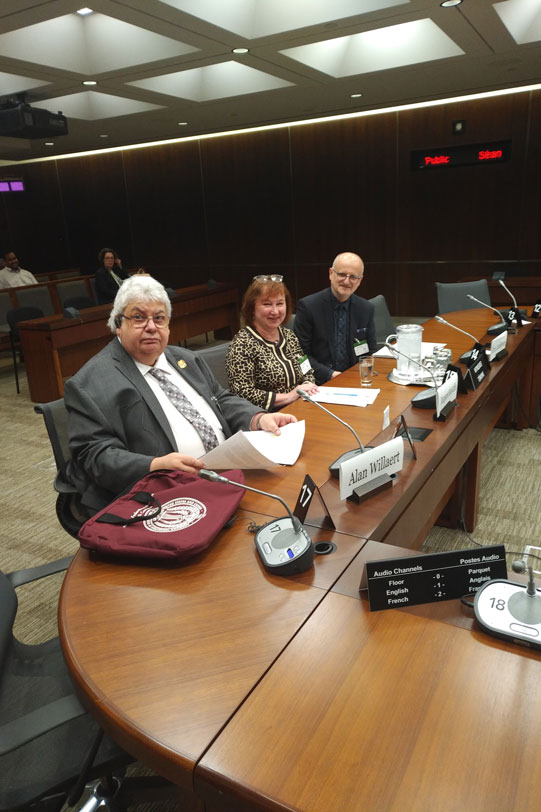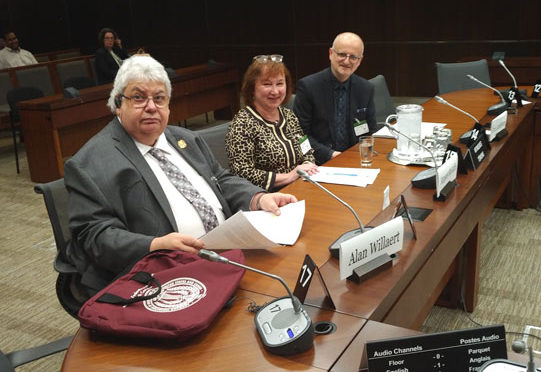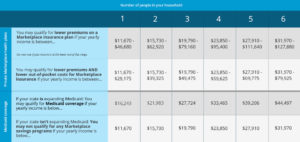
Caption: CFM representatives appeared before the Standing Committee on Industry, Science, and Technology to outline their recommendations for amendments to the Copyright Act (L to R) are: AFM/CFM Vice President from Canada Alan Willaert, Canada Music Publishers Association Executive Director Margaret McGuffin, and Local 406 (Montreal, PQ) Secretary-Treasurer Eric Lefebvre. (Photo credit: Isabel Metcalf)
June 5, 2018—Yesterday, representatives of the Canadian Federation of Musicians (CFM) appeared before the Standing Committee on Industry, Science and Technology to outline recommendations for much-needed amendments to the Copyright Act. The consultation follows a presentation made to the Heritage Committee on May 29. In their statements, AFM/CFM Vice President from Canada Alan Willaert and Local 406 (Montreal, PQ) Secretary-Treasurer Eric Lefebvre called on the committee to lay the foundation for regulatory and policy tools and provide the financial support needed to ensure that Canadian professional musicians thrive in the digital environment now and for the years ahead.
“Our government must respect the contributions of our creative communities, and the indelible mark that recording artists and professional musicians have made on our cultural identity,” says Willaert. “The amendments we strongly urge the committee to adopt would increase revenue streams to musicians, create sustainable employment, and help to preserve arts and culture in our country.”
Among the list of recommendations, CFM identified changes to the definition of sound recording, eliminating the exemption for radio advertising, and expanding the definition of private copying to include new media devices to be its top priorities.
“Professional musicians are losing a significant part of their livelihood to streaming. Many can no longer support themselves solely through their music career and are living in poverty,” adds Lefebvre. “Changes to the Copyright Act are critical to the long-term success of all content creators in this digital, globalized world”.
Singer-songwriter Damhnait Doyle of Local 820 (St. John’s, NL), urges the committee to look at the issues on the table and make the amendments that will give the creative community the opportunity to make the choice to continue to be musicians in this country. “Throughout my 25 years as a longstanding and proud member of Local 820 of the Musician’s union, I have only seen the standard of living decrease for those of us who have chosen to make this our profession,” she says. “We are being hammered from every angle, from piracy to streaming, to being at the losing end of exemptions to broadcasters and losing our royalties for our work in film and TV because the definition of “sound recording” needing be redefined, while our American counterparts do get paid for their efforts. Meanwhile the cost of living is continually rising and our middle class has been eviscerated.”




